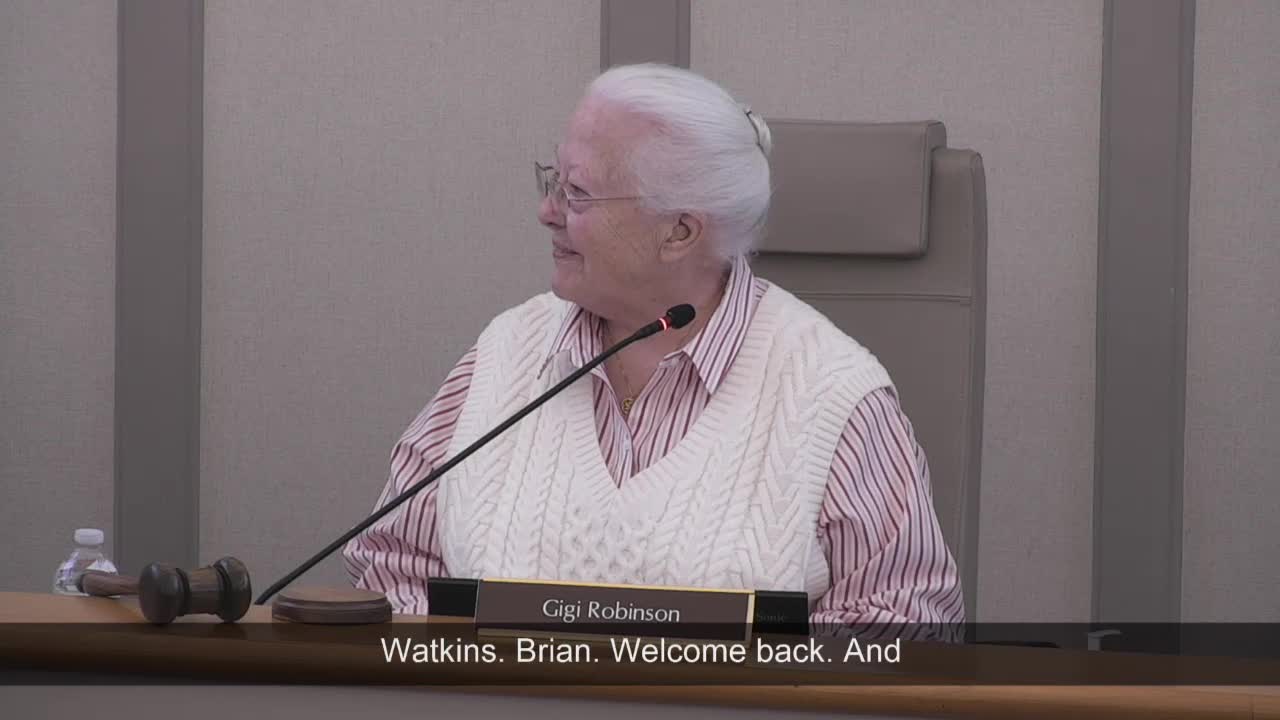Leesburg planners revisit zoning rules for public utilities, direct staff to write stricter use standards
Get AI-powered insights, summaries, and transcripts
Subscribe
Summary
The Planning Commission reviewed proposed 'major' and 'minor' public-utility categories in the zoning rewrite, raised health and safety concerns about treatment and storage facilities near homes, and directed staff to draft use standards addressing odor, noise and separation distances after consulting the utilities department.
The Leesburg Planning Commission on a work-session night reviewed how the town's zoning rewrite treats public utilities and directed staff to draft more specific use standards to address odor, noise and safety concerns near residences.
Town staff described a two-category approach in the draft zoning ordinance: "public utility major" for facilities such as substations, sewage treatment facilities, fuel storage and water purification plants, and "public utility minor" for distribution and metering equipment, transmission and collection infrastructure and water/sewer transmission lines. The draft would allow minor utilities by right in most districts and require a special-exception review for major utilities in most residential districts, excluding the Historic District.
The commission pressed staff on safety and nuisance risks. "Sewage smells. Public utilities have noise. Water smells of chlorine," said the chair, restating concerns about locating treatment or storage facilities close to homes. Commissioner Bridal said she did not want fuel or petroleum storage "right on top of residents," citing a recent house explosion and urging buffers and stronger siting standards.
Staff told the commission the ordinance already requires major utilities to meet district height rules, screening and material-harmony requirements, and that stationary-noise impacts would be checked against the town's general noise rules. "We can certainly go back and look at some other special-exception use standards such as separation," staff said. Mike Watkins, identified in the discussion as a utilities official, answered technical questions about water treatment chemistry and operations: "No. I don't think we use any chlorine anymore in the water. We're not using chloramine. The county is. We're not."
Commissioners acknowledged the tension between preventing nuisances near homes and ensuring the town can extend water and sewer service. Staff emphasized that because the town owns and operates its water and sewer systems, zoning changes must preserve the ability to provide service and that siting decisions remain part of the town's capital planning. "Zoning is not our only tool to determine where water and sewer facilities go," a staff member said.
Action taken: the commission directed staff to consult with the utilities department and return with draft special-exception standards and separation/buffering language addressing odor, noise and safety concerns so the zoning rewrite can better specify where major facilities are permitted.
The commission also noted that state law limits how far localities can regulate certain state‑regulated utilities (for example, electric or gas utilities) and that any zoning changes must account for those statutory limits. Staff said they will incorporate those legal constraints and follow up with the utility director and bring options back to the commission.
Looking forward: staff will draft recommended standards for the use table and special‑exception criteria and present them at a future meeting for further direction.
